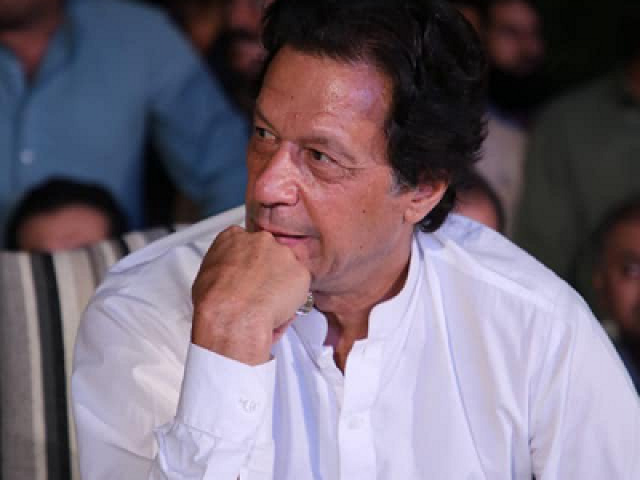The ‘Pakistan first’ approach
Khan told the Foreign Office that Pakistan’s national interests must be kept supreme in dealing with other countries

Prime Minister Imran Khan
PHOTO:FILE
Khan told the Foreign Office that Pakistan’s national interests must be kept supreme in dealing with other countries. Elaborating further, in his maiden press conference Foreign Minister Shah Mehmood Qureshi said, “I want to convey a message to the people of Pakistan that the foreign policy will begin and end with the national interests of Pakistan. My priority will be to have a national consensus on our foreign policy, by adopting a bipartisan approach.”
Naya Pakistan needs new ideas for economic gains
In developed democracies, political parties may have differences on certain domestic issues but they always maintain bipartisan consensus on foreign policy issues. In Pakistan’s case, this principle is even more important for the simple reason that we are facing multiple challenges on the external front. Also, no political party or any leader would disagree with Qureshi’s statement that the overarching goal of the country’s foreign policy should be “Pakistan first”. The problem, however, is that who would define what is in Pakistan’s interest and what isn’t? In the past, elected governments were sent home on this tricky issue of national interest. Similarly, there were a number of decisions Pakistan took in the past in the name of national interest that eventually turned out to be disastrous for the country. Two such follies include supporting the so-called “Afghan Jihad” at the behest of the West in 1979 and then switching sides and becoming part of the US-led invasion of Afghanistan after the 9/11 attacks in 2001. Both those major policy decisions were taken by the military dictators. At the time they might have justified those decisions but history tells us that Pakistan has paid and in fact and has still been paying the price of those blunders.
Given this baggage, it would be a great step forward if the PTI government led by Khan is able to determine Pakistan’s national interests. For this purpose, some hard questions need to be asked. For example, is it in Pakistan’s interest to move away from the security-centric state? Is it in Pakistan’s interest to follow a set of policies that help the country get rid of this notorious tag of supporting certain militant groups as proxies? Is it in Pakistan’s interest to have friendly or at least manageable relationship with its neighbours, including India? Is it in Pakistan’s interest to further enhance strategic partnership with China and deepen ties with Russia while at the same time not to follow a confrontational path with the US? Is it in Pakistan’s interest to maintain a delicate balance in our ties with both Iran and Saudi Arabia? If the answer to all those questions is yes, then the new government led by Prime Minister Khan shouldn’t have any difficulty in formulating a “Pakistan first” foreign policy.
Published in The Express Tribune, August 27th, 2018.
Like Opinion & Editorial on Facebook, follow @ETOpEd on Twitter to receive all updates on all our daily pieces.















COMMENTS
Comments are moderated and generally will be posted if they are on-topic and not abusive.
For more information, please see our Comments FAQ